Article by Doug Britt, FMN and member, Reston Association’s Environmental Advisory Committee
Salt-based de-icing and anti-icing agents are routinely applied to roadways during and prior to winter storm events in Northern Virginia for the important purpose of maintaining public safety. The primary agent used is sodium chloride (NaCl). The sodium, chloride, and other impurities in the salt eventually make their way into our environment through runoff from meltwater, as well as through splash and spray from vehicular traffic and wind. These processes can elevate sodium and chloride concentrations in the environment to harmful levels; although, sodium is not as prevalent a concern as chloride, owing to the greater solubility of the latter.
Road salt can contaminate drinking water resources, impair the ecology of lakes and streams, and harm local plants and animals. Salts also have negative impacts on infrastructure, vehicles, and other property. Corrosion from salts can increase the costs of maintenance, repair, and replacement of such infrastructure. Although there are a number of alternative de-icing agents available, sodium chloride as a brine solution appears to have the least negative environmental impact when considering the full life cycle of its production and application. Sodium chloride, nevertheless, can generate a host of environmental problems.

Water Quality Impacts
Contaminants from road salt enter water resources through storm drains, surface runoff, and infiltration into groundwater. In most parts of North America, chloride concentrations in freshwater surface waters are less than 120 mg/L. Chloride concentrations in Fairfax County surface waters have steadily increased for the past 25 years, consistent with the use of de-icing agents. Concentrations of chloride in surface waters are also correlated with the proportion of impervious surfaces in a watershed. Chloride also is seeping into groundwater throughout Northern Virginia where concentrations are steadily increasing with time. De-icing salts that seep into groundwater can be discharged as baseflow to local streams following a lag time of tens to hundreds of years.
Elevated chloride concentrations can lead to chemical stratification in lakes and ponds which impedes turnover and mixing of bottom and top waters – leading to oxygen deficiencies in deeper layers. High chloride levels are toxic to aquatic organisms such as fish and macroinvertebrates, and some aquatic plants. The presence of salt can also release toxic metals from the sediment. Various federal and Virginia state water quality standards and guidelines have been established to protect public health and the environment from the negative effects of sodium and chloride:

Soil Impacts
Through the process of cation exchange, the sodium ion replaces other soil cations such as calcium (Ca+), magnesium (Mg+), and potassium (K+) and changes soil permeability making soil more impervious, less stable, more acidic, and less fertile.
Pet Impacts
Ingestion of road salt directly (or from licking paws or drinking meltwater) can harm pet health in many ways, and in severe cases cause death. Salt exposure to a pet’s paws can also cause inflammation and sores that are slow to heal.
Wildlife Impacts
Birds may mistake salt crystals for seeds or grit. Consumption of even small quantities of salt can lead to death due to the extreme sensitivity of birds to salt. Some mammals (e.g., deer) are attracted to salt resulting in a higher risk for collisions with vehicles. Loss of salt sensitive vegetation can also impact wildlife habitat and create conditions favorable to non-native invasive species. Amphibians such as frogs, toads, and salamanders also are known to be sensitive to elevated salt levels given their very permeable skin, their physiological dependence on osmotic processes, and their early life stage in wetland habitats.
Roadside Vegetation Impacts
Impairment of roadside vegetation is often the most visible sign of salt damage to the environment. Salt impacts vegetation foliage via dehydration and can affect root health through osmotic stress. Salt also can disrupt nutrient uptake, seed germination, and plant development. Impacts to roadside vegetation can impair wildlife habitat, destroy buffer zones that capture and retain pollutants, and lower species diversity.
Infrastructure Impacts
Salt exposure impacts infrastructure, which can greatly increase required maintenance and replacement costs. Corrosion of roads, bridges, and sidewalks is a documented consequence of winter road activities, as is corrosion of vehicles. De-icing salts also can damage vehicle parking garages, which suffer the same corrosion damage as bridge decks. In addition to corrosion damage, de-icing agents can increase the frequency of freeze and thaw cycles that are deleterious to asphalt.
What is Being Done to Address this Issue Locally?
Recently The Izaack Walton League of America has initiated a Winter Salt Watch program, encouraging citizen scientists to monitor local streams before and after road salting activities. Several Reston residents, including myself, are now participating by monitoring Reston tributaries of Difficult Run (DR) and Sugarland Run (SR). As a baseline, I recorded chloride concentrations prior to the first 2019 winter storm at two of these sites. The results were 91 mg/L (SR) and 101 mg/L (DR), both being above average but within the normal range for North American streams. Chloride concentrations measured at these same locations subsequent to road salting associated with the first two snow/ice storms of 2019 exhibited more than a fourfold chloride increase (412 mg/L and 479 mg/L, respectively). Data from other Reston sampling sites are not yet available. If you would like to participate in the Winter Salt Watch program, you may do so directly through the Izaack Walton League of America (https://www.iwla.org/conservation/water/join-the-winter-salt-watch), or you may contact Will Peterson, Reston Association Watershed Manager (wpeterson@reston.org). Reston Association and has been monitoring the water quality in Reston’s four lakes since 1997. Although chloride concentrations are not directly measured, conductivity values are recorded multiple times each year. Conductivity is a measure of the electrical conductance of water and is positively correlated with salinity. The conductivity of all four Reston lakes is much greater since 2015 than their historic values.
The Virginia Department of Environmental Quality (VA DEQ) is currently developing a Salt Management Strategy (SaMS) planning process. The goal of the SaMS is to develop a comprehensive suite of management measures capable of achieving the chloride loads called for in the Accotink Creek chloride Total Maximum Daily Loads (TMDLs). TMDLs are developed to determine the total amount of a pollutant that a waterbody can handle without resulting in the impaired status of that waterbody. Although the TMDL was specific to the Accotink Creek watershed, the SaMS is intended to be applicable to the Northern Virginia region, including Reston, since winter application of salt products occurs similarly across all of our region. The final SaMS product will be a report outlining a comprehensive strategy to successfully reduce the impacts of salt products applied to manage snow and ice while maintaining high standards of public safety.
In 2018, the VA DEQ completed a report entitled “Salt Management Strategy: Environmental Impacts and Potential Economic Costs and Benefits of Improved Management Practices in Northern Virginia.” A literature review conducted as part of that report suggested that by using Best Management Practices (BMPs) to optimize de-icing agents and their application methods, it is possible to reduce both the costs and the negative impacts of de-icing operations without jeopardizing public safety. Next steps in the development of the SaMS include identifying traditional and non-traditional BMPs to achieve the SaMS goal, developing a water quality monitoring program to evaluate implementation effectiveness over time, developing a comprehensive education and outreach campaign, and developing a mechanism to track BMPs and salt use through a stakeholder-driven participatory process. The final report is expected in early 2020.
Meanwhile as individuals and business owners we should be cognizant of the potential environmental impacts associated with the application of de-icing agents. This understanding may help us better balance the twin goals of protecting public safety while minimizing environmental damage.
References
• https://www.potomacriver.org/wp-content/uploads/2018/07/ICP18-3_Bencala.pdf
• https://www.des.nh.gov/organization/divisions/water/wmb/was/salt-reduction-initiative/impacts.htm
• https://www.iwla.org/conservation/water/join-the-winter-salt-watch
• Fay, L., D. Veneziano, A. Muthumani, X. Shi, A. Kroon, C. Falero, M. Janson, and S. Petersen. 2015. Benefit-cost of various winter maintenance strategies. Minnesota Department of Transportation No. CR 13-03.
• Laite, K., 2017, Annual Environmental Monitoring Program Lakes Anne, Thoreau, Audubon and Newport, Bright Pond and Butler Pond, Aquatic Environment Consultants, Inc.


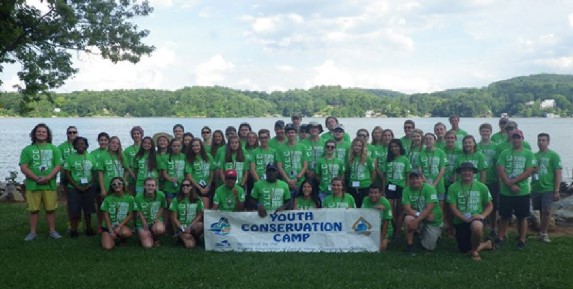
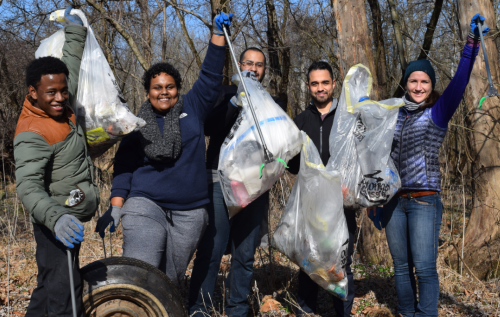
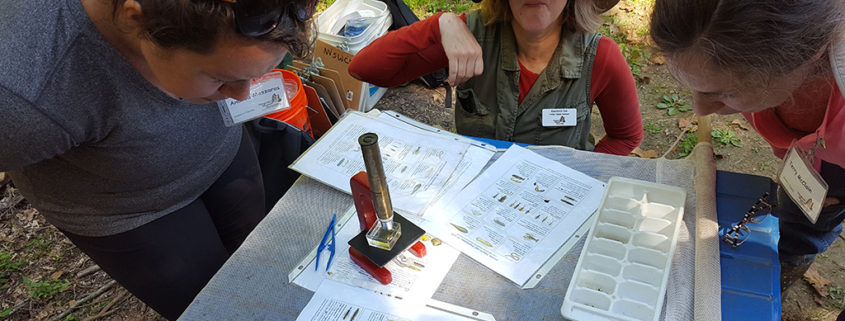
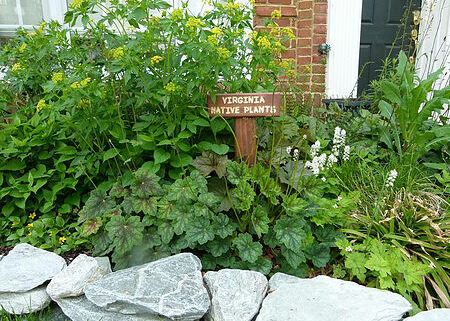
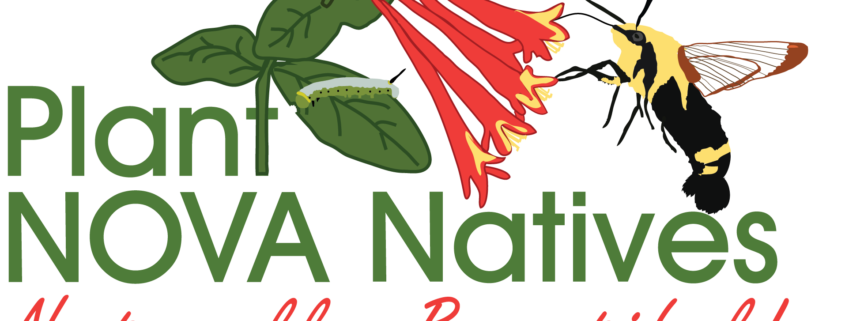
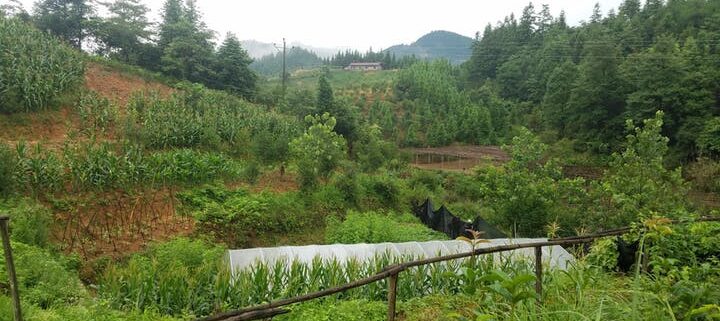
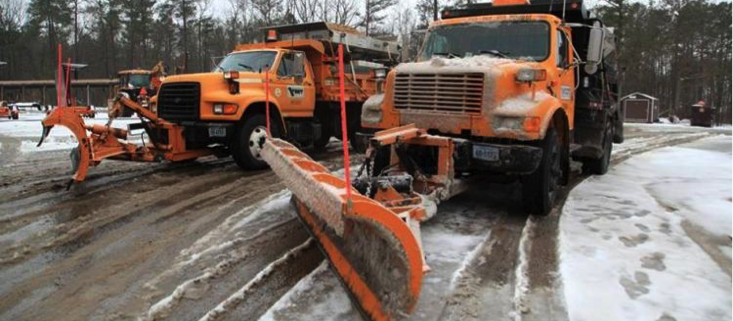


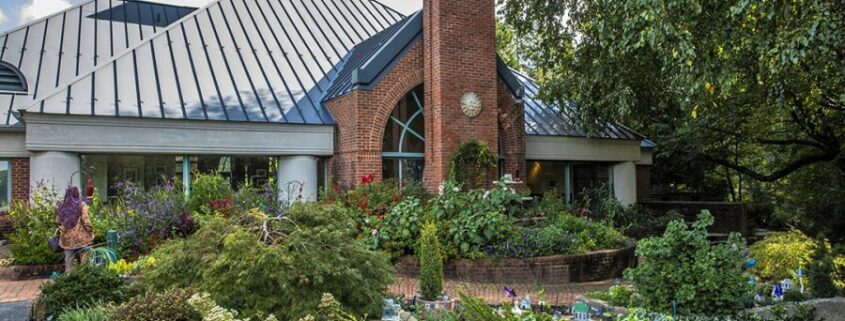

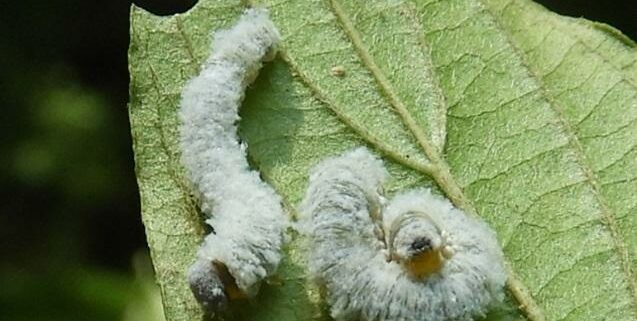
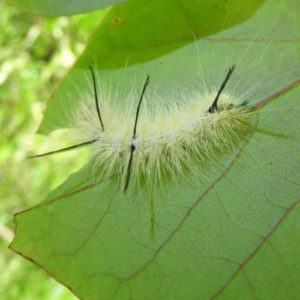 We also observed fall webworm moth caterpillars, geometer moth caterpillars, and others that we could not identify.
We also observed fall webworm moth caterpillars, geometer moth caterpillars, and others that we could not identify.